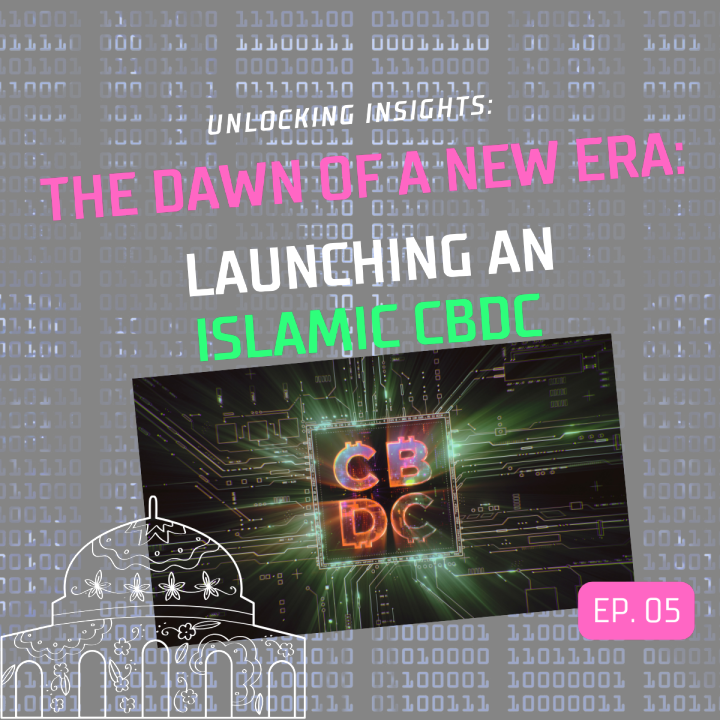The Path to a New Era: Islamic CBDC and the Digital Transformation of Islamic Banking
The creation of a Digital Islamic Economy provides an opportune moment to introduce an Islamic Central Bank Digital Currency (CBDC) as a key foundational element. This initiative seamlessly combines the enduring values of traditional Islamic financial principles with the advantages of modern digital technology, paving the way for a new era in Islamic banking and finance.
In an age where technology intertwines with finance, the concept of an Islamic CBDC emerges as a revolutionary stride, blending the rich traditions of Islamic banking and finance with the innovations of the digital world. This initiative isn’t just about introducing a new currency; it’s about reshaping the financial landscape to align with Sharia principles, technological advancements, and global economic trends.
The Islamic Finance sector represents a significant and rapidly growing market in the global financial landscape. As reported by Chloe Domat in Global Finance, this industry today in 2024 reaches a staggering $3.5 trillion in AuM, spreading its influence across more than 80 countries. However, its core growth and innovation are primarily concentrated in a few key markets. These countries not only drive the expansion of Islamic finance but also play a crucial role in establishing industry benchmarks and nurturing new developments. In the last decade, the industry has witnessed an impressive annual growth rate of 10%–12%. This booming growth underscores the potential for integrating modern digital solutions in this sector.

1. Embracing Islamic Financial Principles
At the heart of the Islamic CBDC lies its unwavering adherence to Sharia law. This digital currency transcends traditional financial boundaries, embedding ethical finance into its core. Innovations like digital platforms for Zakat and Sadaqah, integrated within the currency system through smart contracts, will revolutionize charitable practices. The currency will also champion ethical investment tracking, ensuring that funds consistently align with Sharia-compliant pathways.
2. Pioneering Technological Infrastructure
The backbone of this digital currency is a state-of-the-art DLT platform, not just ensuring security and transparency, but also enabling smart contracts for Sharia-compliant transactions and value chain. A critical component is the integration of digital identity solutions, fortifying the system against unauthorized access and bolstering AML/CFT compliance.
3. Crafting a Robust Legal and Regulatory Framework
The Islamic CBDC will navigate the complex tapestry of global financial regulations. A key focus will be facilitating cross-border transactions while adhering to diverse legal systems. The framework will also address intellectual property rights in fintech, safeguarding innovations and collaborations that fuel the CBDC’s development.
4. Engaging Stakeholders Effectively
Building public trust and acceptance is pivotal for the success of the Islamic CBDC. This journey involves educating the public, dispelling myths about digital currencies, and demonstrating the synergy between technology and Islamic finance principles. Traditional Islamic financial institutions will play a transformative role, evolving from conventional operations to digital forerunners.
5. Strategic Pilot Testing and Phased Rollout
The rollout of the Islamic CBDC will commence with culturally adaptive pilot tests, tailored to the diverse economic and social landscapes of the Islamic world. These pilots will be instrumental in gathering insights, with robust feedback mechanisms ensuring that user experiences shape the currency’s evolution.
6. Comprehensive Risk Management
Risk management in the realm of Islamic CBDC is not just about identifying potential hazards but also about devising Sharia-compliant strategies to mitigate them. Takaful, or Islamic insurance, will be key in this regard. Additionally, scenario planning for extreme situations will be a cornerstone of the currency’s stability strategy.
7. Diligent Monitoring and Evaluation
Monitoring the health of the Islamic CBDC ecosystem will require real-time data analytics, providing insights into user adoption rates, transaction volumes, and overall economic impact. An adaptive policy framework will ensure that the system evolves with emerging challenges and opportunities.
8. Prioritizing Ethical and Social Considerations
The digital currency aims to bridge the digital divide, ensuring inclusivity. It also seeks to promote ethical consumption and production, in line with Islamic principles, fostering a more socially responsible financial system.

Islamic CBDC and the Future of Banking
The path to launching an Islamic Central Bank Digital Currency (CBDC) presents a series of challenges, yet it is full with extraordinary potential. This initiative goes beyond the creation of just another central bank digital currency; it signifies a major shift towards a more inclusive, ethical, and technologically sophisticated financial ecosystem. As we navigate this journey, the principles of Maqasid al-Sharia will be instrumental, guiding us with their focus on welfare, ethics, and the holistic development of society.
Our commitment to these principles ensures that the Islamic CBDC will be more than a mere financial instrument; it will act as a cornerstone in the establishment of a Digital Islamic Banking & Finance Ecosystem. This ecosystem will not only adhere to the traditional values of Islamic banking & finance but will also embrace the opportunities presented by modern technology, thus combining time-honoured principles with innovation.
The Islamic CBDC, therefore, stands as a beacon heralding a new era in Islamic banking and finance. It represents a pivotal step in building a future where financial practices are aligned with the ethical and moral values advocated in Maqasid al-Sharia, ensuring that financial advancements serve the greater good and contribute to the holistic well-being of society. This venture, while ambitious, holds the promise of reshaping the landscape of Islamic banking & finance, making it more accessible, efficient, and in tune with the evolving needs of the global community.
With in-house Islamic Banking and Finance expertise and pioneering thought leadership in Islamic CBDC, Chavanette Advisors stands at the forefront, poised to assist Islamic economies in their digital transformation journey.
Further Learning on CBDC – For those eager to explore more about Central Bank Digital Currencies (CBDCs) and the evolving landscape of central banking, the Chavanette Website, as well as our Alpha Knowledge Platform (αLP) serve as invaluable resources. Furthermore, there is our CBDC Handbook & Encyclopedia, designed to offer comprehensive insights into this emerging field.
Join the Discussion – We invite you to engage in a discussion on the pivotal role of Islamic CBDCs. How would they impact your daily economic life? Share your perspectives on this critical aspect of economic stewardship.
Maqasid al-Sharia Primer
As a brief explainer to those who are not familiar with “Maqasid al-Sharia”: Maqasid al-Sharia refers to the objectives or principles of Islamic law (Sharia). This concept is fundamental in Islamic jurisprudence (fiqh) and is used to ascertain the deeper intentions and purposes behind Islamic rulings. The Maqasid provides a framework for understanding and interpreting Sharia in a way that fulfils the needs and benefits of society while remaining true to Islamic principles.
The Maqasid al-Sharia are generally categorized into five primary objectives, which aim to protect and preserve:
- Religion (Din): Safeguarding faith and religious practices, ensuring freedom of worship, and the propagation of Islam.
- Life (Nafs): Protecting human life, health, and well-being. This includes ensuring safety and security and prohibiting harm or actions leading to loss of life or injury.
- Intellect (Aql): Preserving and promoting intellectual abilities. This encompasses the encouragement of learning and knowledge, and the prohibition of substances or actions that impair judgement or reason, like alcohol or drugs.
- Lineage (Nasl): Safeguarding lineage and family, including rules regarding marriage, family relations, and the upbringing of children. It also encompasses protecting the dignity and sanctity of human relationships.
- Property (Mal): Protecting wealth and property rights. This includes regulations on trade, commerce, ownership, and charity, ensuring ethical and fair transactions and prohibiting theft, fraud, and usury.
Understanding Maqasid al-Sharia is crucial, as it guides the interpretation and application of Islamic laws in a way that is relevant and beneficial to society, while staying true to the core values and principles of Islam.





